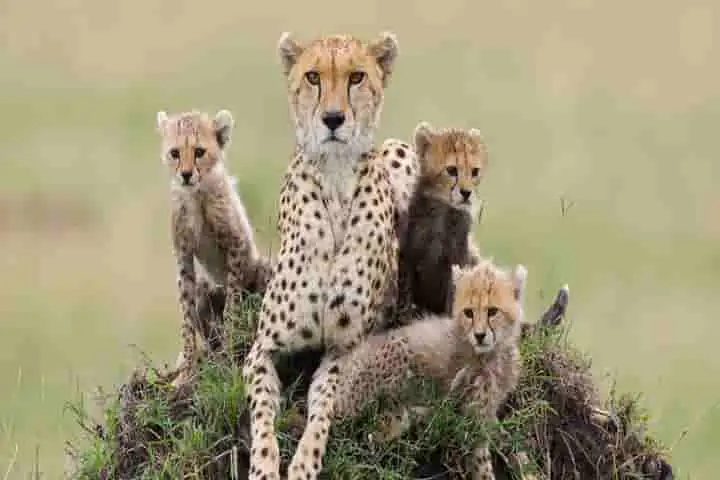There is happy news for wildlife enthusiasts in the country as the fastest mammal, cheetah, which had gone extinct since 1952, is all set to return to India.
This was announced by the Central Government as the action plan for introducing 50 of these cats over a period of 50 years was launched on Wednesday.
Launching the action plan at the 19th meeting of the National Tiger Conservation Authority (NTCA) the Union Environment Minister Bhupender Yadav said: “The Cheetah that became extinct in independent India, is all set to return.”
Cheetah is not found in India. They got extinct in late 1950s. They are now confined to 10 percent of their historical distribution world wide. Species are conserved by saving their habitats and getting them protected from biotic disturbances. pic.twitter.com/Iszvh3y9C1
— Ramesh Pandey (@rameshpandeyifs) December 4, 2021
The earlier plan of reintroducing 13 of these cats – eight male and five female — in November last year went into limbo because of the Covid-19 pandemic.
The action plan specifies that a cohort of around 1 0 to 12 young cheetahs that are ideal for reintroduction shall be imported from Namibia or South Africa in the first year. This will form the founder stock.
According to the action plan, “An existing coalition of wild males shall be selected while the selected females shall also be known to each other as far as possible. The animals' lineage and condition shall be checked in the host country to ensure that they are not from an excessively inbred stock and are in the ideal age group, so as to conform to the needs of a founding population.”

Kuno Palpur National Park located in Madhya Pradesh
Kuno Palpur National Park located in Madhya Pradesh has been found ideal for introducing the cheetahs because of its suitable habitat and adequate prey base.
Yadav also said that the Prime Minister is keen on protection and conservation of seven major big cats including Cheetah.




















